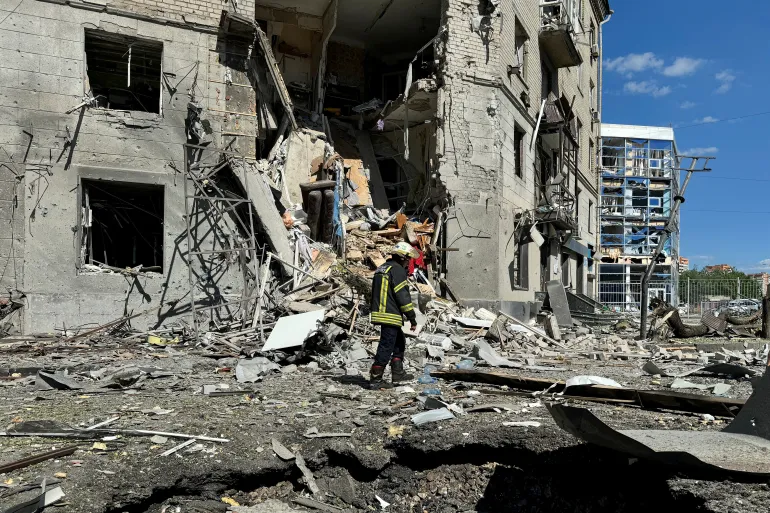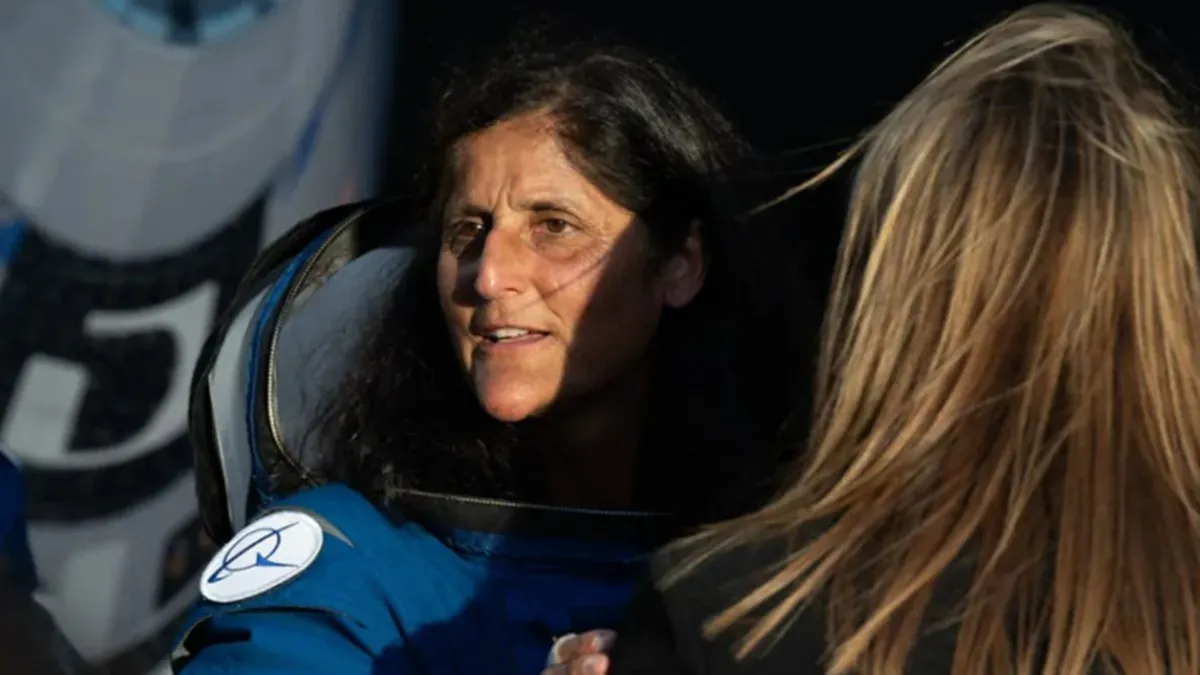Fighting
Kharkiv: In a devastating development in the Russia-Ukraine war, Russian guided bombs targeted an apartment building in Ukraine’s Kharkiv on Saturday. The attack resulted in the tragic death of two individuals and left 53 others injured, as confirmed by rescuers who revised earlier death toll estimates on Sunday. This strike is part of the broader conflict’s impact on urban areas, causing significant civilian casualties and infrastructure destruction.
Kyiv Region: The Russia-Ukraine war continues to bring destruction far beyond the frontlines, with a Russian missile attack overnight injuring two people in the Kyiv region. The assault caused extensive damage to residential buildings and other structures, underscoring the persistent threat to civilian areas from Russian missile strikes.
Bryansk, Russia: In response to ongoing hostilities, Ukraine launched a significant drone offensive targeting Russia’s western region of Bryansk. Utilizing at least 30 drones, the operation reportedly caused no damage according to Russian officials. This incident highlights Ukraine’s strategic use of drone technology to strike within Russian territory, aiming to disrupt military and logistical operations as part of the Russia-Ukraine war.
Smolensk, Russia: Further illustrating the expanding geographic scope of the Russia-Ukraine war, the Smolensk region in Russia also faced drone attacks. The region’s governor, Vasily Anokhin, announced that Russian air defense systems had successfully intercepted and destroyed several drones. These attacks show Ukraine’s efforts to leverage asymmetric tactics against a conventionally stronger Russian military.
Enerhodar: Near the Russian-occupied Zaporizhzhia Nuclear Power Plant in Enerhodar, Ukrainian attack drones wounded one person. Russian-installed officials reported the incident, raising concerns about the safety and security of this significant nuclear facility amidst the ongoing Russia-Ukraine war. The proximity of military activities to the nuclear plant poses substantial risks, including potential catastrophic accidents or intentional sabotage.
Politics and Diplomacy
Russian Athletes: Amid the broader geopolitical ramifications of the Russia-Ukraine war, Russia’s Sports Minister Mikhail Degtyarev addressed the international isolation of Russian athletes. With most barred from the upcoming Paris Olympics, Degtyarev expressed optimism that Russian athletes would soon participate in more international competitions, arguing that their absence diminishes these events’ quality and competitiveness. This stance reflects the ongoing impact of the conflict on international sports and cooperation.
British Response: In the political arena, British Prime Minister Rishi Sunak publicly countered claims by far-right leader Nigel Farage, who suggested that the West provoked Russia’s invasion of Ukraine. Sunak firmly dismissed this notion as “completely wrong,” asserting that it only serves to reinforce Vladimir Putin’s narrative. This public disagreement highlights the divisions within Western political discourse regarding the origins and handling of the Russia-Ukraine war.
Nuclear Weapons: Reflecting the heightened tensions of the Russia-Ukraine war, Moscow indicated a potential shift in its nuclear weapons policy. According to the RIA state news agency, Andrei Kartapolov, head of the Russian lower house’s defense committee, suggested that Russia might alter the timing for the use of its nuclear weapons if threats against the country increase. This statement underscores the precarious nature of the conflict and the significant global concern over nuclear rhetoric.
Weapons and Military Aid
Guided Bombs: Ukrainian President Volodymyr Zelenskyy revealed alarming data on the scale of Russian bombardments amid the ongoing Russia-Ukraine war. In June alone, Russia deployed over 2,400 guided bombs across Ukraine, with approximately 700 targeting Kharkiv. This extensive use of guided munitions emphasizes Russia’s continued reliance on heavy bombardments to achieve its military objectives, significantly affecting Ukrainian cities and civilian populations.
Military Aid: Amid the challenges posed by the Russia-Ukraine war, President Zelenskyy called on Ukraine’s Western allies to expedite the delivery of promised military aid packages. He stressed the need for prompt action to ensure that agreements made with U.S. President Joe Biden and other Western leaders are fulfilled without delay. The timely provision of military support is crucial for Ukraine’s defense efforts and its capacity to sustain operations against Russian forces. Zelenskyy’s appeal reflects ongoing difficulties in securing and deploying international military assistance within the complex logistical and political landscape of the war.
Conclusion
As the Russia-Ukraine war continues into its 849th day, the situation remains dire, with significant human, infrastructural, and geopolitical ramifications. The escalation in drone warfare, persistent missile attacks on civilian areas, and evolving diplomatic and military strategies all underscore the conflict’s complexity and intensity. International responses, both in terms of military aid and political support, play a crucial role in shaping the conflict’s trajectory. As Ukraine strives to defend its sovereignty, the international community’s support remains pivotal in maintaining pressure on Russia to cease its aggressive actions and providing the necessary assistance to uphold Ukraine’s resistance in the Russia-Ukraine war.
For further insights and comprehensive content, please visit our homepage



